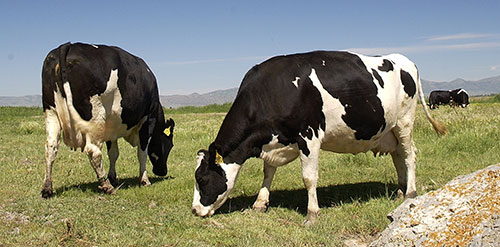
by Amanda Smith, Associate Editor
In the U.S., dry cow therapy has become a no-brainer, with a 72 percent adoption rate. It's an inherent part of our protocols to help prevent dry period infections. The same is true of Canada, where the practice is implemented for 88 percent of cows.
The goal of dry cow therapy is to improve udder health by curing or preventing new intramammary infections, as the incidence of new infections is highest at this time. Yet, overuse of antibiotics in veterinary medicine is considered as one of the main factors responsible for the emergence of antibiotic resistance in bacteria, noted Theo Lam with the Netherland's Utrecht University at the National Mastitis Council annual meeting.
This line of thinking was the driving force behind the Netherland's political decision to eliminate the preventative use of antibiotics and, with it, blanket dry cow therapy.
To evaluate the effect of dry cow treatment, a split-udder study was conducted. In 100 herds, 1,600 cows were selected that had a low SCC at their last milking before dry-off. In low SCC cows, the incidence rate of clinical mastitis in the period between drying off and 100 days in milk was found to be significantly higher in quarters dried off without antibiotics.
The use of internal teat sealants alone could aid in preventing dry period intramammary infection. Studies have shown that, in high SCC cows, a combination of antibiotics and internal teat sealants has benefits over the use of antibiotics alone. This was not the case in low SCC cows, indicating that there may be no need to combine antibiotics and internal teat sealants.
The key issue when using internal teat sealants without antibiotics is hygienic application. When done properly, teat sealants can be applied without problems, even in first-calf heifers. Based on recent data, the preventative effect of dry cow therapy in low SCC cows cannot be dropped without adverse effects. These effects could be counterbalanced by the use of internal teat sealants, concluded Lam.








